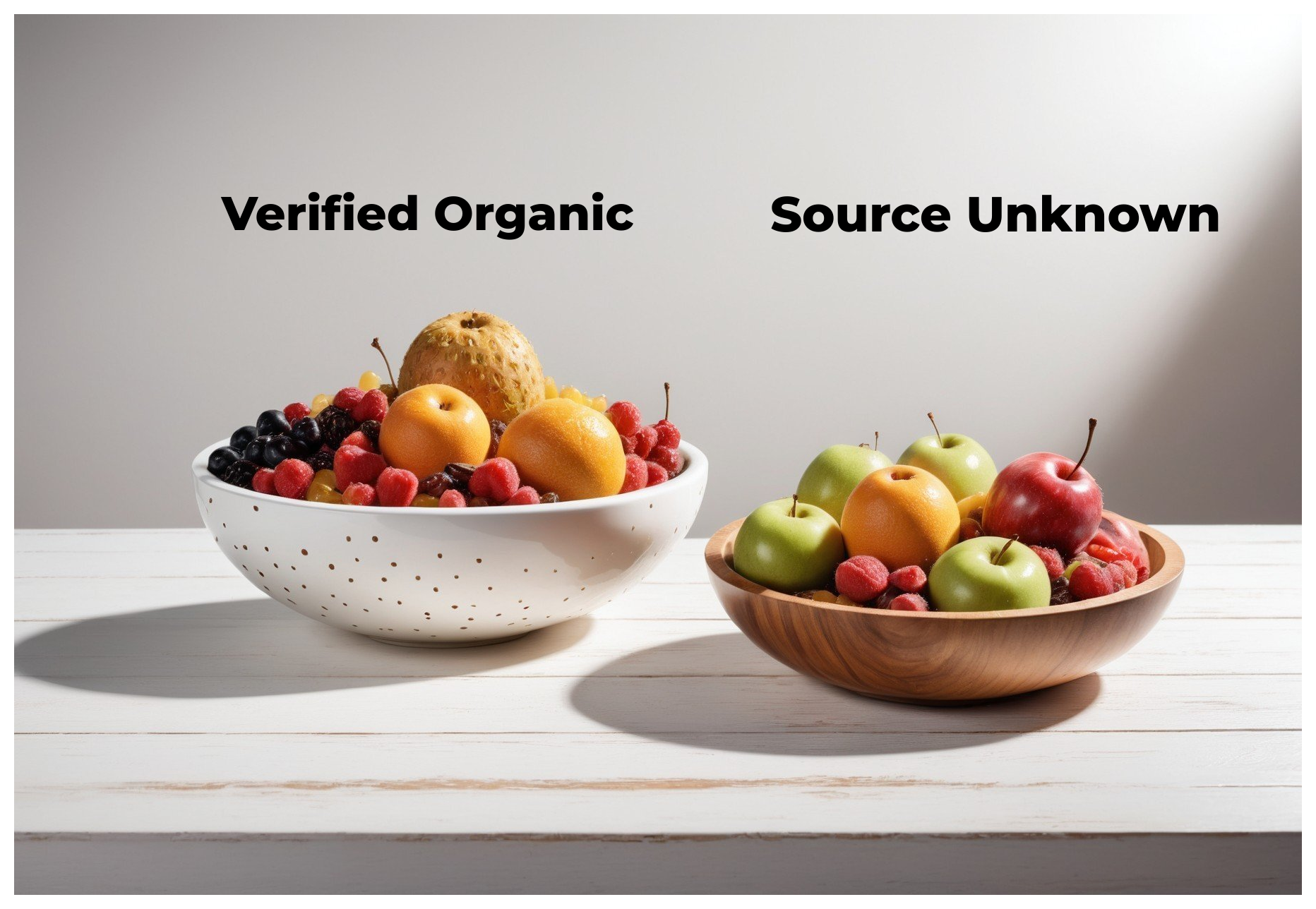AI’s Secret Sauce: Verified Data on Chain

AI will produce more trustworthy outputs if the LLMs (Large Language Models) use data that is verifiable. Blockchains will play a vital role in providing verifiable data.
The convergence of artificial intelligence (AI) and blockchain technology is poised to revolutionize multiple industries. AI's potential to transform various sectors is indisputable, but its reliability depends heavily on the quality and verifiability of the data it processes. Blockchain technology, with its inherent transparency, immutability, and security, offers a robust solution for ensuring data integrity.
Come with us as we explore the intersection of AI and blockchain. We will show you how IronWeave’s future-ready AI platform is uniquely positioned to address the emerging challenges in this space.
The Growing Synergy Between AI and Blockchain
The AI boom has led to significant advancements in various fields, propelling companies like Nvidia, a leading producer of AI-dedicated computer chips, to unprecedented market valuations, including making it the most valuable company on the planet as of this writing, surpassing valuations of both Microsoft and Apple. The demand for data centers has also surged, driven by the need to store and process vast amounts of information essential for AI applications. At the recent Consensus conference in Austin, which gathered over 15,000 crypto enthusiasts and industry experts, the conclusion was clear: the intersection of AI and blockchain could add a staggering $20 trillion to global GDP by 2030.
The integration of AI and blockchain technologies is not just a futuristic vision, but rather it is a present reality with immense economic potential. As AI continues to evolve, the need for secure, reliable, and verifiable data becomes increasingly critical. Blockchain technology, being decentralized and transparent, offers a potential solution to these challenges, paving the way for more trustworthy AI outputs.
Further, blockchains can provide another important element to enhance both data privacy and efficient AI technology.
Bitcoin Mining and AI: An Emerging Partnership
One of the most intriguing developments at the intersection of AI and blockchain is the emerging partnership between AI and Bitcoin mining. Bitcoin miners are equipped with powerful chips, state-of-the-art cooling systems, and infrastructure designed to process and store vast amounts of data. These resources align perfectly with the requirements of AI companies, which are facing a dramatic shortage of data centers, AI chips, and access to electricity.
Recently, CoreWeave, an AI cloud provider, offered to acquire Bitcoin miner Core Scientific for $1.6 billion, underscoring the strategic value of these resources. Core Scientific also announced a $3.5 billion deal to host CoreWeave’s AI-related services in its data centers over the next 12 years. If this acquisition occurs, Core Scientific would host CoreWeave’s AI-related services. Similar initiatives by other miners like Hut 8 and Iris Energy highlight the growing trend of AI-hosting partnerships.
This synergy of using available mining compute resources for AI computing not only benefits Bitcoin miners by providing a new revenue stream but also strengthens the broader Bitcoin ecosystem. As AI companies leverage the infrastructure of Bitcoin miners, the resulting partnership enhances the processing and security capabilities of the Bitcoin network, demonstrating the practical benefits of AI and blockchain cooperation in the race for global computing resources.
Beyond Bitcoin Mining: Long-Term Opportunities for AI and Blockchain
The potential applications of AI and blockchain extend far beyond Bitcoin mining. One critical area is information validation. While AI technologies like ChatGPT have gained immense popularity, they have also raised concerns about the authenticity and transparency of AI-generated content. Additionally, there are objections (and lawsuits) to proprietary data being ingested by ChatGPT and other AI companies without permission. Issues such as control over AI input data, AI content, bias, and the proliferation of deep fakes necessitate reliable methods for verifying information, and protecting the information you may not want included in AI’s nonstop scanning of available data, including your personal or company data.
Blockchain technology, with its decentralized and immutable ledger, offers a solution for validating AI-generated content. For instance, startups like Attestiv create digital fingerprints for videos based on metadata, which are then stored on a public blockchain. Any manipulation of the video can be detected by comparing it with the original fingerprint, ensuring authenticity. This approach can be extended to validate various types of data, from research findings to official communications, reinforcing the role of blockchain in ensuring trustworthy AI outputs.
Another promising area is the integration of AI with smart contracts and digital currencies. Virtual assistants like Siri and Alexa can perform various tasks, but their functionality is limited by the complexity and speed of transactions. By combining AI assistants with blockchain-based smart contracts and digitally native currencies, these tools can execute complex tasks, including digital payments, more efficiently and securely. This integration could significantly enhance productivity and open up new avenues for automation and innovation.

The Economic Potential of AI and Blockchain Integration
The economic impact of integrating AI and blockchain is substantial. PwC projects that AI could add $15.7 trillion to the global economy by 2030 – more than the output of India and China combined – while blockchain could contribute an additional $1.8 trillion. The combined effect of these technologies could drive the total economic value to $20 trillion or beyond, thanks to their synergistic capabilities.
The integration of AI and blockchain not only enhances data security and transparency but also drives innovation across various sectors. As these technologies continue to evolve, their combined impact on global GDP will likely exceed current projections, highlighting the transformative potential of AI and blockchain convergence.
IronWeave’s Role in Securing AI and Blockchain Integration
IronWeave’s future-ready AI platform is uniquely positioned to address the challenges and opportunities presented by the convergence of AI and blockchain. But perhaps the most compelling role IronWeave can play in the integration of AI and blockchain is to ensure privacy. Data on IronWeave is owned and controlled by its creators, securing it from online scanners, enabling private models that cannot be otherwise scanned, and enabling selective sharing of data (including payments) to only those recipients for whom it is intended. Private AI inputs, private AI outputs, and private AI payments for services are possible on IronWeave, unlike publicly scannable blockchains. Importantly, IronWeave can scale to millions of these AI-driven interactions every second and keep those valuable AI-based data elements on-chain. IronWeave can be the blockchain rails on which AI delivers the value it promises, in a secure, scalable, flexible and private fabric that can connect the entire world.
As such, several key features and capabilities make IronWeave suitable for this central role in AI and blockchain integration:
- Independently Encrypted Blocks: Each block of data is encrypted with a unique key, ensuring that even if one block is compromised, the rest remain secure.
- Granular Access Control: IronWeave allows you to control access to each individual unit of data, such as a payment, record, or message, enhancing security and creating new opportunities for monetization.
- No Central Store of Data: By eliminating a central data repository, IronWeave reduces the risk of large-scale data breaches.
- Non-Scannable Blockchain: Transactions are private and cannot be scanned or traced, unlike on public blockchains like Ethereum or Bitcoin.
IronWeave also accommodates various types of encryption based on the specific needs of different use cases. This flexibility ensures that data is encrypted both in transit and at rest, providing comprehensive security. The platform’s ability to handle massive quantities of data securely and privately, at scale and cost-effectively, makes it an ideal solution for the burgeoning AI market.
The Takeaway
The intersection of AI and blockchain technology represents a paradigm shift, with the potential to revolutionize multiple industries. As AI continues to evolve, the need for secure, reliable, and verifiable data becomes increasingly critical, and along with them, the need for data privacy. Blockchain technology, being decentralized and immutable, offers a robust solution to these challenges, ensuring the authenticity and transparency of data. IronWeave completes the onramps to this intersection by providing privacy and scale.
IronWeave’s future-ready AI platform is at the forefront of this transformation, providing advanced privacy and security solutions that protect critical data and enable the AI market to grow and thrive. By leveraging the unique capabilities of blockchain technology, along with its unique architecture that ensures privacy, IronWeave is poised to play a pivotal role in shaping the future of AI and blockchain integration, driving innovation and economic growth in the years to come.
